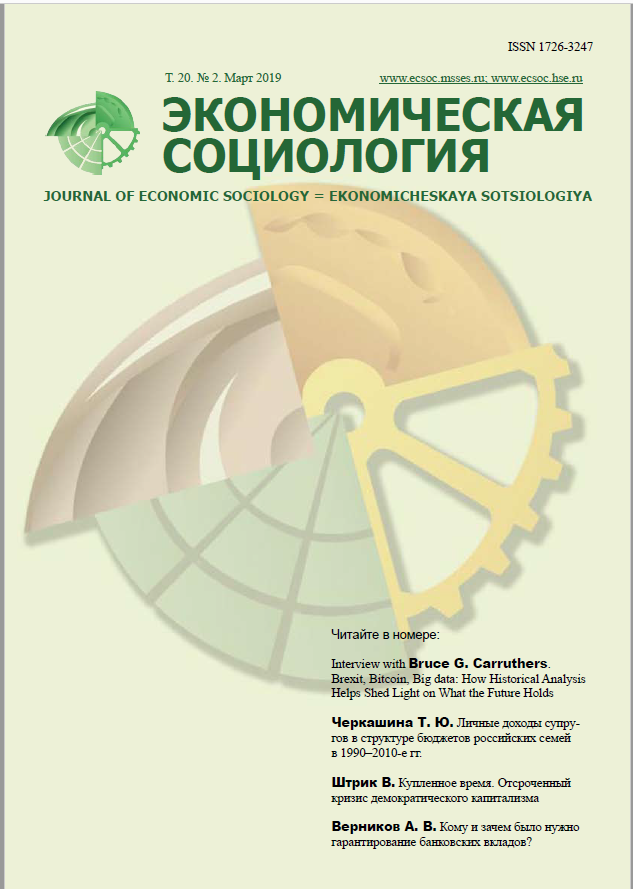The Mechanics of Social Exclusion: An Ethnographic Critique of the American Capitalism
Book Review: Venkatesh S. (2018) Glavar’ bandy na den’: izgoy-sotsiolog vykhodit na ulitsu [Gang Leader for a Day: A Rogue Sociologist Takes to the Streets] (Russian transl. by M. Reynolds), Moscow: RIPOL Classic Publishing House (in Russian)
Abstract
This book changed the views of the scientific community and ordinary Americans about the urban poor and won the author recognition among the left, closing the door to the camp of neo-liberals and earning him a promotion to an academic position at Harvard University. However, the main effect was that this book and others by S. Venkatesh, written in the style of the new ethnography, raise the degree of public, scientific and political discussion about racial discrimination and what kind of model of American capitalism was acquired by the end of the twentieth century. Showing the close relationship between social exclusion, poverty and crime, Gang Leader for the Day: A Rogue Sociologist Takes to the Streets reveals the hypocrisy of the slogans about equality of opportunity and the perfection of American capitalism. Why does social policy fail in American cities? How exactly does the institutional structure of the capitalist economy and American democracy contribute to the social exclusion of the black population? Why did the mass construction of the ghetto not solve any of the problems that were designated by the initiators of the American project? Asking these and other questions, the author comes to disappointing conclusions. The combination of structural restrictions and cultural experience leads to the fact that ghetto residents develop social relations, follow those behaviors that marginalize their neighborhoods and nullify the chances of success for present and future generations. Formally, this work is difficult to attribute to a scientific monograph. However, researchers of a broad humanitarian profile should pay attention to it. In addition to a rich description of a closed community, the book gives a deep understanding of what constitutes ethnographic and narrative turns in modern-day sociology. This book review begins with a description of the genre’s originality and the differences between the presented book and classical academic studies. Then, we discuss how, due to the rejection of the academic mainstream, S. Venkatesh demonstrates the productivity of innovative ethnography in studies of marginality. To acquaint the Russian audience with the enormous contribution that sociologist S. Venkatesh made to the development of modern Western ethnography, his first and, so far, only book translated into Russian is compared with his earlier monograph. It is carried out in strict accordance with the academic canon and contains a deep analysis of the socioeconomic deprivation of black ghettos within the context of the American model of neoliberal capitalism. The text of this article concludes with a discussion about how Gang Leader for the Day simultaneously reflects an ethnographic and narrative turn that occurred in the social sciences in the final quarter of the last century.













